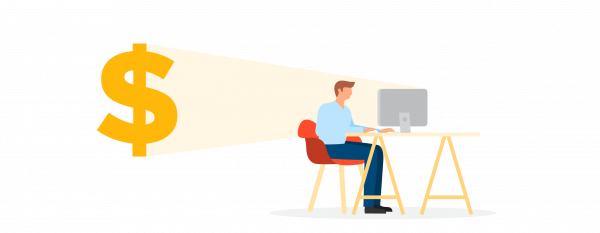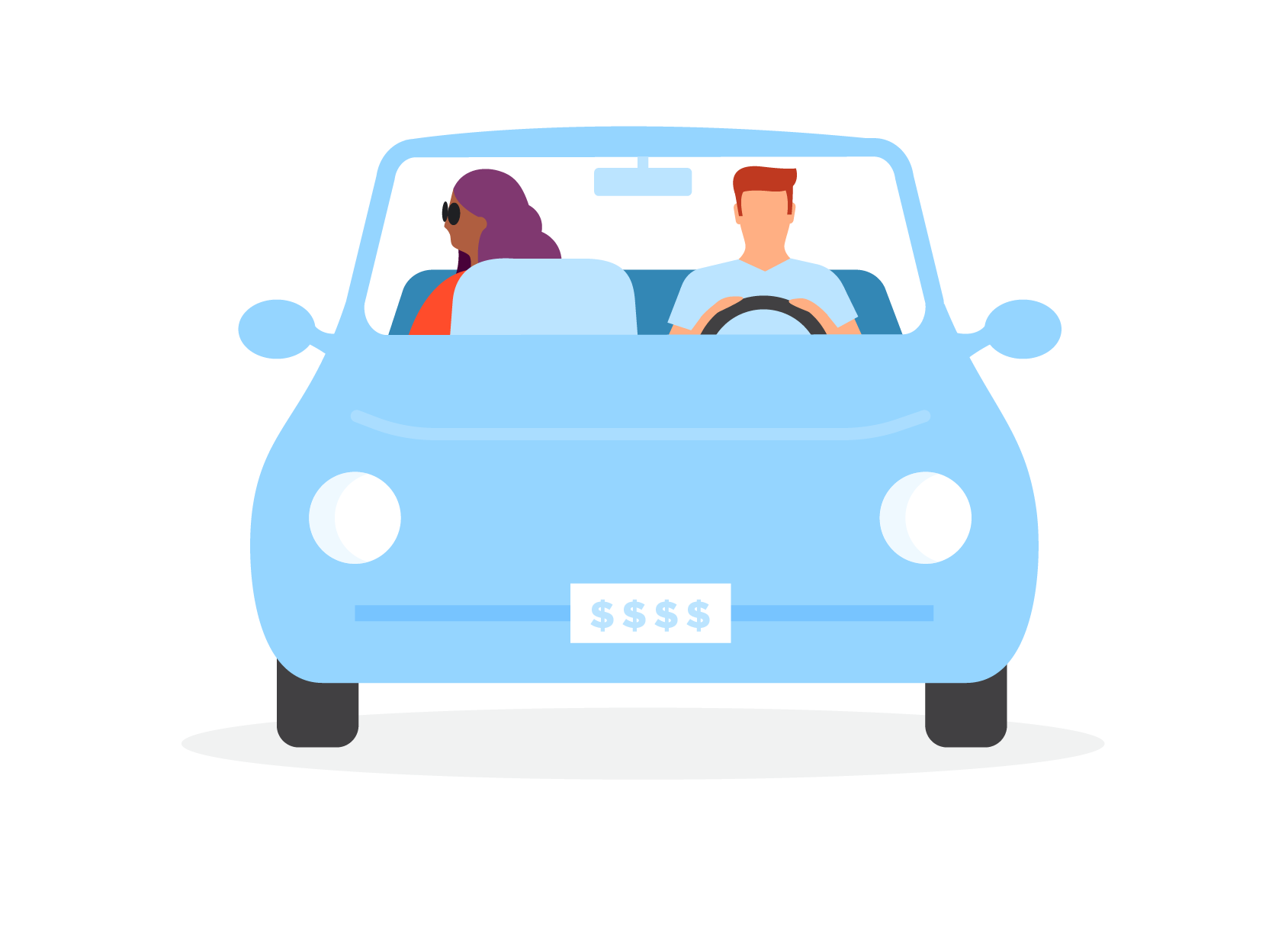25 Ways to Make Money Online, Offline and at Home in 2025
Here’s how to earn money with a side gig, and how long it will take to see the extra income.
Many, or all, of the products featured on this page are from our advertising partners who compensate us when you take certain actions on our website or click to take an action on their website. However, this does not influence our evaluations. Our opinions are our own. Here is a list of our partners and here's how we make money.
Side hustles are popular, and possible. What you need is a good idea and the motivation to make it happen.
25 ways to make money
We turned 25 ways, complete with need-to-know details, to inspire you to earn. While most people want to make money fast, don’t discount the “slow” gigs, as they may pay more in the long run.
For sections with input from Redditors: We sifted through Reddit forums to get a pulse check on how users feel about certain side hustles. We used an AI tool to help analyze the feedback and then summarized insight. People post anonymously, so we cannot confirm their individual experiences or circumstances.
How to make money online
1. Pick up freelance work online

Make money online through websites such as Upwork, Fiverr and Freelancer.com. These sites offer opportunities to do a variety of freelance jobs, like writing, programming, design, marketing, data entry and being a virtual assistant.
A report from Freelancer.com found that computer security jobs had the fastest growth in listings on its site in the second quarter of 2024, up 27.1%.
Jobs involving writing skills are also in high demand. Although generative artificial intelligence (AI) is being used more for content creation, it can’t fully do the work of human writers.
Companies are looking for writers who know how to edit AI content and who have at least a basic understanding of search engine optimization — learning or beefing up SEO skills could be a lucrative side hustle.
No matter what freelancing you do, keep track of the going rate for the kind of work you provide so you know what to charge. Some freelancers are charging $100 an hour or more for their freelance writing services.
Expert take: Soraya Ivette is a content marketing strategist who offers services on Fiverr. She started freelancing part time when she was home with her young children, and has done well.
"Once I set up my profile on Fiverr, I started getting job requests within a couple of weeks and I started taking on more jobs and making regular money consistently every month," she said in an email interview.
Total time: It can take a while to get your first gig. Setup: 24-48 hours. How easy to start: Easy, if you have the expertise. Age threshold: Typically 16 to 18+. How fast you'll get paid: Varies by site.
2. Test websites and apps
Another way to make money from home is on sites like UserTesting.com. You get paid for your thoughts on how well — or not so well — certain websites and apps work. You’ll have to complete a short test to be accepted by UserTesting, then you’ll be paid depending on the test type.
Total time: Approval can take a few days. Setup: Less than an hour. How easy to start: Easy, if you have the tech gear and complete a sample test. Age threshold: 18+. How fast you'll get paid: Usually after 14 days.
3. Learn to use AI tools
Generative artificial intelligence is so hot right now. Research from PwC estimates that the North American economy will see a $3.7 trillion impact by 2030, thanks to the AI market.
It's a good time to learn how to make money by using AI tools. Some AI-related side hustles include:
Integrating AI tools as a freelancer, to help you create digital products or to edit AI content for a client.
Improving your advertising, marketing efforts and management of your existing small business.
Teaching others to use AI tools.
Total time: Depends on demand. Setup: Around 24-48 hours if using a site like Upwork or Freelancer.com. How easy to start: If you’re already familiar with AI tools, it will be easier to get started. Age threshold: 16+ for Freelancer.com and 18 for Upwork. How fast you'll get paid: Varies by client or the number of products you sell and your chosen platform.
4. Take surveys for money
You can make money from home by taking online surveys, but don’t expect to earn a lot. Survey sites don’t typically offer a big payoff, and many sites are more useful for earning gift cards than cash.
Some of the more popular survey sites include Swagbucks and Survey Junkie. Read about how little we made with survey sites to find out which one might be best suited for you.
Total time: It will take a while. Setup: Just minutes. How easy to start: Very. Just register and begin. Age threshold: 13 to 18+, depending on the site. How fast you'll get paid: Varies by site.
5. Make money from your blog with affiliate links
If you’re a blogger who gets decent traffic, you could make money by joining an affiliate network. Affiliates get paid when someone clicks through from the website to the partner site and buys something there.
Some bloggers make a lot of money this way, particularly those who do affiliate marketing full-time. You can use social media or a platform like Pinterest to drive traffic to your blog. Read more about affiliate marketing and other ways to make money blogging.
Total time: It can take quite a while to build an audience. Setup: With blog templates, building a site is easy. How easy to start: While getting started can be easy, creating regular content may be another matter. Age threshold: Varies. How fast you'll get paid: A month or two, on average.
6. Sell your wares on Etsy
Have a penchant for woodworking, jewelry-making, embroidery or pottery? Sell your crafts on Etsy, the go-to site for artisans selling home goods, art and knickknacks. According to Etsy, the company has more than 95 million active buyers. Learn more about how to make money on Etsy.
Total time: It might take quite a while for customers to find you. Setup: Can be quite involved. How easy to start: Leaning toward "hard" on the difficulty meter. Age threshold: 13+. How fast you'll get paid: Daily, weekly, biweekly or monthly, depending on your preference.
7. Self-publish an e-book
Writing a good book is tough, but the internet makes it easy to bring it to market. If you’re a writer who can churn out pages, you can use Amazon’s Kindle Direct Publishing to sell your books(s) on the Kindle store. It’s free to publish a book, and you can earn up to 70% of each sale in royalties. Write your book, enter a clear description and the details to be displayed and upload your manuscript. Set the price and see if it sells.
Total time: How fast can you type? We don’t have to tell you writing a book can be a slog. Setup: Quick and easy on KDP once the book is ready. How easy to start: Just start writing. Age threshold: 18+, but parents and guardians can use their accounts to sell minors’ books. How fast you’ll get paid: Monthly. You'll need to meet a $100 threshold for wire or check payments.
8. Get advertising revenue from your blog or YouTube channel
If your YouTube videos or blog posts draw an audience, you may be able to make money from advertising. YouTube sets 1,000 subscribers as the benchmark for applying to the YouTube Partner Program if you want to place ads on your channel.
You can apply with 500 subscribers for other monetizing features like channel memberships. You can also use Google’s AdSense, the same ad platform on YouTube, to put relevant ads on your blog or website for earning potential. Read more about how to make money on YouTube and Google AdSense.
Total time: It can take several weeks to get up and running. Setup: Fairly easy. How easy to start: Depends on how good you are at producing interesting videos. Age threshold: 18+. How fast you'll get paid: Could take a long while to earn the first payout; then monthly.
9. Become an Instagram influencer
Companies are using Instagram influencers — people with large, dedicated followings on the platform — to rep their products. You can get in on the action by applying for opportunities via a marketing platform like Open Influence or Aspire, or by contacting the brands you want to work with. You can also make money on TikTok this way.
Total time: You'll need to stick with it. Setup: Quick and easy. How easy to start: Not that easy. Read: Must build following to gain influence. Age threshold: 13+. How fast you'll get paid: Varies on partnerships.
10. Monetize your Twitch channel
Gaming could be a way to make money from home if you have a steady following on Twitch, the go-to site for gamers. Streamers can receive money from viewers’ virtual cheers, or “Bits,” and even get a share of subscription and ad revenue if they reach Affiliate or Partner status. Learn more about how to make money on Twitch.
Total time: This can be a long game. Setup: Quick and easy. How easy to start: Easy to start; takes a while to build a following. Age threshold: 13+. How fast you'll get paid: Monthly.
» MORE: How to make money as a kid
11. Sell your photography
Turn your photographs into cash via sites like Fine Art America, which lets you upload your images to sell as prints, T-shirts, phone cases and more. Other marketplaces for photographers include SmugMug, 500px and PhotoShelter. Some sites require a subscription but may provide features ranging from cloud storage to password-protected galleries and a customized website.
What the Redditors say: Success selling photos requires both high-quality content and a bit of business savvy around rights management and pricing. A general theme is that you may do better by forming direct relationships with buyers than purely relying on stock sites.
Total time: Buyers need to find you — and like your work. Setup: Just a few hours. How easy to start: If you have a library of photos, you're on the way. Age threshold: Varies. How fast you'll get paid: Depends on your sales platform.
How to make money from home
Some side hustles don't even require you to leave the house. Or if they do, it might just be a short walk around the block with a furry friend. Working from home requires a little creativity and a stick-to-it spirit. Here are some excellent ideas for side gigs from home:
12. Become a dog walker with Rover or Wag
Love dogs? Choose dog walking as a beginner's way to make money. Apps like Wag and Rover offer on-demand dog walking, so you can pick up walks when your schedule allows. If you have space (and your landlord’s permission, if you rent), you could offer overnight dog boarding. Read the fine print if you sign up for these services.
What Redditors say: There's potential to earn an extra $300+ per month with a gig service like Rover when you have regular clientele, but success can depend heavily on location and market. Are dogs trending in your town?
Total time: Building a client base may take some time. Setup: Can take a few weeks to be approved. How easy to start: Love pets? You're good to go. Age threshold: 18+. How fast you'll get paid: Two days to a week.
13. Sell unused gift cards
Make extra money by selling unused or partially used gift cards on a site like CardCash or GiftCash. CardCash notes it will pay you up to 92% of the card’s value, or you can trade in your card for one you’ll use. Read more about what to do with unwanted gift cards.
Total time: In minutes if your gift card is for a popular store. Setup: Easy. How easy to start: The more gift cards you have to sell, the better. Age threshold: 18+. How fast you'll get paid: A few days to about two weeks.
14. List your spare bedroom on Airbnb
Renting out your home or spare bedroom on vacation rental sites is another way to make extra money. Be prepared to spend some money to clean and keep up the property, replace home goods and pay toward service fees. And scrutinize your rental agreement, HOA rules and zoning or other restrictions before you get started. Learn more about how to start an Airbnb business.
Total time: Demand drives success, and that depends on your location. Setup: A listing can be created and live in hours. How easy to start: If you have a place to rent, it's a simple process. Age threshold: 18+. How fast you'll get paid: A day or more after check-in.
How to make money offline
There's online and at-home ways to make extra money — and then there's a third alternative: offline. This version of the gig economy may require more work, but the upside can be substantial. Since there’s no escaping the internet these days, some of these offline methods do have online components:
15. Sell your gently used clothes

Selling clothes you no longer wear is a quick way to make some money. Start with local consignment shops to make money quicker or use sites like ThredUp and Poshmark to find buyers. When listing items online, be sure to take clear, well-lit photos of your pieces and research similar items to set competitive prices. Get tips on how to sell your clothing.
Total time: Varies by sales channel. Setup: Easy and fast. You can simply go to a consignment shop or fill a box with clothes and send it in. How easy to start: Easy. Cleaning out the closet may be the hardest part. Age threshold: 13+. How fast you'll get paid: Varies by sales channel.
16. Trade in old phones, electronics for cash
Have an old phone, iPad, laptop or gaming system lying around? Sell it on a site like Swappa, Gazelle or Facebook Marketplace. Check out Amazon’s trade-in program, which pays participants in Amazon gift cards — and eBay, too. If you’re in a rush, try an ecoATM kiosk, which offers cash on the spot for your device.
Total time: Lots of options, so your time spent will vary. Setup: A breeze. How easy to start: Easy, especially if your device is in good shape. Age threshold: Typically 18; check terms of service. How fast you'll get paid: Varies by where you sell.
17. Get a babysitting gig
Everyone from college students to recent retirees can make money by watching other people’s children. Word-of-mouth referrals from friends and family are still a great way to get started, but you can also create a profile for free on Care.com or Sittercity to expand your reach. Note any specialized skills, such as CPR certifications, to make yourself more marketable.
Total time: Online setup takes minutes; neighborhood referrals may take a while. Setup: Just minutes. How easy to start: Getting the word out is the main thing. Age threshold: Very young if you're using referrals. 18+ online. How fast you'll get paid: When the parents come home.
18. Rent out your car

City-dwellers often don’t use their cars for days or weeks at a time. That idle time can translate to extra money with services like Getaround and Turo, which let you rent out your car by the hour or day. You take home the majority of those earnings, while Getaround or Turo takes a cut for protecting your car while it’s being rented.
Total time: Demand for your car will depend on the local market. Setup: It takes about a half hour to set up an account. How easy to start: With an appropriate vehicle, it's easy. Age threshold: 21+ with a valid driver's license for Turo; Getaround does not list an age requirement. How fast you'll get paid: Varies by site.
19. Sign up for TaskRabbit
If you actually enjoy putting together Ikea furniture or standing in long lines, you may be cut out for doing tasks for others. Websites like TaskRabbit can connect you with people who need help with a variety of things, such as moving, cleaning, delivery and handyman services. The site also offers several virtual and online tasks, such as helping with a research project or data entry. Read about how to make money with TaskRabbit.
What Redditors say: This is a flexible side hustle that can be good for a couple hundred bucks of supplemental income per month. But, like with other gig service sites, your success is dependent on location and demand.
Total time: Local demand for your skills will determine the time you spend. Setup: A couple of hours, then some time for approval. How easy to start: Easy, though you'll need to do some research. Age threshold: 18+. How fast you'll get paid: A few days after a job.
20. Become a private tutor
Parlay your math, science, foreign-language or test-prep expertise into a lucrative side gig by becoming a private tutor. You can tutor people online or in-person.
What you charge can depend on your experience, expertise and what’s in demand. To get started, see what types of tutors are needed on Craigslist, or create a profile on sites like Tutor.com or Care.com. You can also advertise your services at local schools and community centers.
Total time: Varies by subject matter. Some companies might require a minimum availability per week (e.g., Tutor.com requires 5 hours). Setup: Can be a bit involved. How easy to start: Students will have to find you, and that might take a while. Age threshold: Any. How fast you'll get paid: Depends on the platform; check the terms of service.
21. Drive for Uber, Lyft
Join Uber or Lyft (or both) and make money by driving passengers around. Just don’t forget to factor in gas and maintenance costs. You need an eligible car in good condition and must agree to a background check and a review of your driving history. Learn how to become an Uber driver or how to make money as a Lyft driver.
Total time: Depends on your market demand. Setup: A few weeks. How easy to start: Not difficult, but you'll need the right type of vehicle. Age threshold: Varies by region from 21-25. How fast you'll get paid: Very fast. Either instantly or within days.
Nerdy Perspective
Driving for Uber was not my favorite side hustle, but it was accessible and the little money I made over a week-long test came quickly. I'd be worried about gas costs, wear and tear on my car, and lots of awkward silence if I were to do it long term, though. I was happier when I delivered food and groceries. I delivered with DoorDash and became a full-service Instacart shopper for short stints in 2024, and found these driving gigs to be less stressful than doing rideshare. Trips were shorter, I spent less time in the car and it was easy to get started, even in my small town.

22. Make deliveries for Amazon, Uber Eats
Take advantage of the growing delivery trend and sign up for a service like Instacart, Uber Eats, Postmates, DoorDash or Amazon Flex. You get paid per delivery, in most cases, and can even earn tips. A car isn’t always required — Postmates and DoorDash let you use a bike or scooter to make deliveries in some cities. However, a background check is almost always part of the deal. Learn more about how to get started with Amazon Flex, Uber Eats and Instacart.
Total time: Depends on your market demand. Setup: About a week. How easy to start: Easy, if you have dependable transportation. Age threshold: Varies by the service, but at least 18. How fast you'll get paid: Varies by vendor.
23. Find work as a housesitter
If you’re willing to watch someone’s home — and maybe feed the pets, water the plants and take out the garbage — become a housesitter. Tap your personal network for referrals or try out HouseSitter.com, which connects homeowners with housesitters.
Total time: Depends on your market demand. Setup: Minutes — or more if you try to drum up business by referrals. How easy to start: That can depend on the need in your area. Age threshold: Varies by site. How fast you'll get paid: Typically at the end of a gig; make arrangements with clients.
24. Sign up to be a mystery shopper
Businesses often want to know how they’re performing from a customer’s perspective. Sign up to be their eyes and ears. You can apply online via sites like IntelliShop, BestMark and Sinclair Customer Metrics. Just beware of scams and do thorough research before signing on.
Total time: Varies by site. Setup: Applying takes little time, but approval can take a while. How easy to start: Relatively easy if you have required transportation and tech. Age threshold: May vary by site. How fast you'll get paid: Varies by company.
25. Put your drone to work
Some of the best camera drones can cost less than $500 — and you can use that investment to make money. Real estate agents turn to drone pilots to generate aerial photos of a home's exterior, and even neat fly-through videos of interiors, which can translate to a relatively easy money-making venture.
If you're willing to learn more advanced skills, like drone mapping, you can often charge more for clients seeking aerial inspections and land mapping.
You need to pass a test to become a drone pilot and register your drone with the Federal Aviation Administration. Then, you can apply for flying gigs.
Total time: Depends on demand. Setup: You'll need to make time to pass a test, and then find clients. How easy to start: If you already have a drone, you're likely qualified. Age threshold: 16+. How fast you'll get paid: Varies by company.
Watch out for making money scams
The internet is full of opportunities to make money online or from home, but many are questionable, if not outright scams. Be wary of any “opportunity” that asks for an upfront fee, wants you to pay for certification, or requests your Social Security number or any financial information, such as your credit card number.
Still unsure if an opportunity is legit? Look for community forums, like those on Reddit, for unfiltered reviews and complaints. Also, check if the company has a Better Business Bureau profile. The BBB assigns ratings based on reported complaints, business transparency and other factors.
ON THIS PAGE
ON THIS PAGE



